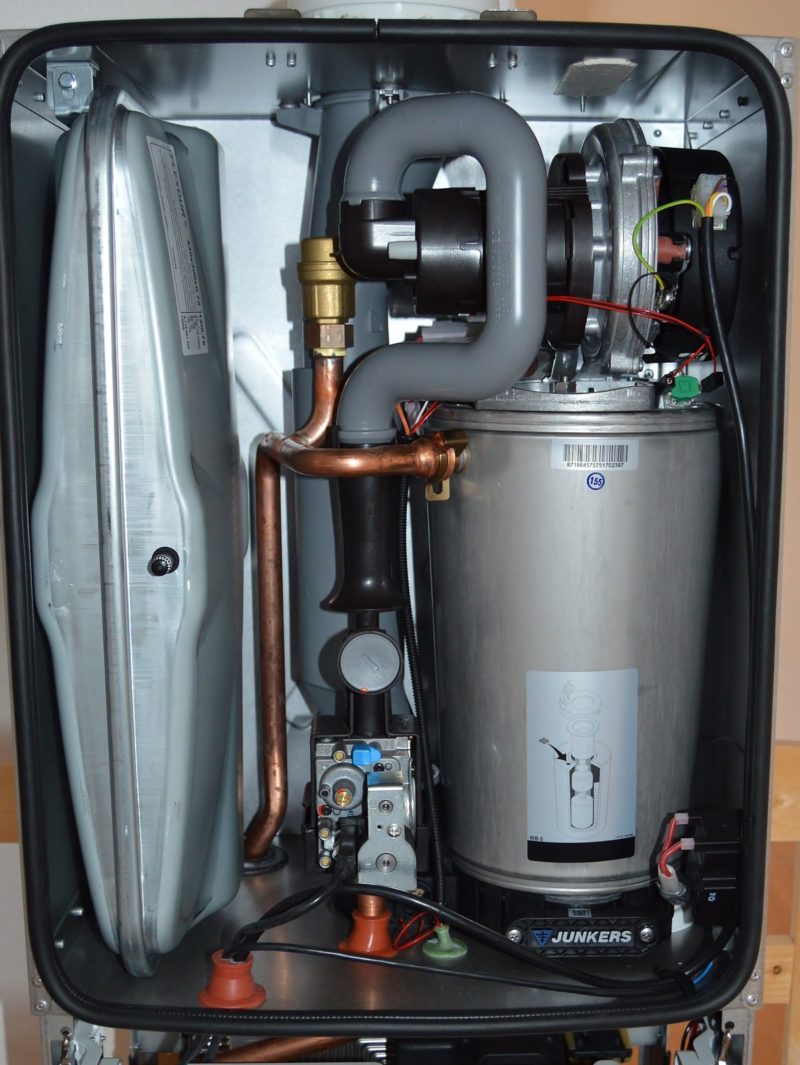How does a tankless water heater work is a straightforward process? Everyone wants to know their working mechanism since their introduction in the 1900s. We know that you are one of those who want to see the down and upsides of a heater that surprisingly heats the water without a tank.
A tankless heater runs on propane or natural gas to perform the task of water heat up. It only requires a place of 2 cubic feet in your home or apartment. That’s relatively less than a tank-style heater that needs an area of 72 cubic feet. Let’s try to understand how a tankless water heater works.
Tankless heaters don’t have to put a lot of effort into providing you with hot water. That’s why they utilize less energy than a tankless heater. So what happens is, when you open a tap, the heater receives a signal that hot water is being used. So the water passes through either an electric heat exchanger or a gas burner. You can gain 2-5 gallons of water in just a minute. The heater stops working when you turn the tap off. That means that you can control the tankless water heater by fixture or any other water outlet.
How A Tankless Water Heater Works
You must know the pros and cons of the tankless water heater. We’ve answered the following questions so you can understand more about its functioning. Let’s know how does a tankless water heater work!
#1. Are you afraid of tank explosions?
Have you heard any incident where the heater tank exploded due to overheating, and the heater in your garage haunts you from that time? If your answer is yes. Then, why are you worried when we have tankless heaters readily available in the market. Buy and install one and enjoy a peaceful life.
#2. Do you want a leak-protected heating system?
Get installed a tankless heater if you can’t compromise on the safety of things placed in the garage because the risk of leakage is not high like a tank water heater. Sometimes the water leaks, but it’s not that much to cause an artificial flood in your home. As we all know, there is no tank and thus no place for water to get stored and leak.
#3. Do you live in a small apartment?
The tankless water heater will serve you as an excellent hot water source if you don’t have enough space in your home to install a heater with a heightened and weighted body. Instead, a tankless water heater will only take a small area at a corner of your home. That too on a wall, unlike a tank-style heater that needs to be placed on the floor.
#4. Do you want to enjoy pure and smooth skin?
I know that girls would be saying yes from their hearts. We all know that a tank-style water heater stores hot water inside and that water can become prone to sediments and hot water buildup. Our skin doesn’t feel good when we shower from that water. On the other hand, a tankless water heater always supplies freshwater.
#5. Do you want to get free from replacing the heater for decades?
Suppose you had a suspicion whether the answer to this question could be yes. The naked truth says yes. a tank; ess heaters spends a life of about 20 years that is relatively more than the life of its counterpart. A tank-style heater serves you for on; ly 8 to 12 years.
#6. Are you living in a big home?
Do you have a; large family and house? Then the tankless heater won’t meet all your home’s taps with the same flow rate. Your savings will go in vain if you try to fix the issue by installing a separate heater for each appliance and bathroom because multiple tankless heaters will utilize the same amount of energy as a single tank-style water heater.
Tank-style Vs. Tankless
We will decide the winner in the final round of the battle between the two types of water heaters. But the winner is not one. Because both heaters have their advantage over the other in different circumstances. For example, tankless heaters lift the winner’s trophy if you live alone or with a small family of 2-3 members.
You won’t have to use the heater to wash the clothes and dishes, and the heater will efficiently manage the load of hot water demand. Alternatively, the tank-style water heater is an excellent pick if you have a large family whose clothes need to be washed once or twice a week. You and your family members have to take a bath and give a bath to dishes 2-3 times a day. You may also want to read about how to reset a tankless heater.
It’s A Wrap!
It’s time to ponder the working mechanism and the best choice between a tankless and tank-style water heater as we are wrapping up this guide on how does a tankless water heater works. You may want to read related articles; know how to clean a tankless water heater and why does my tankless water heater go cold.

